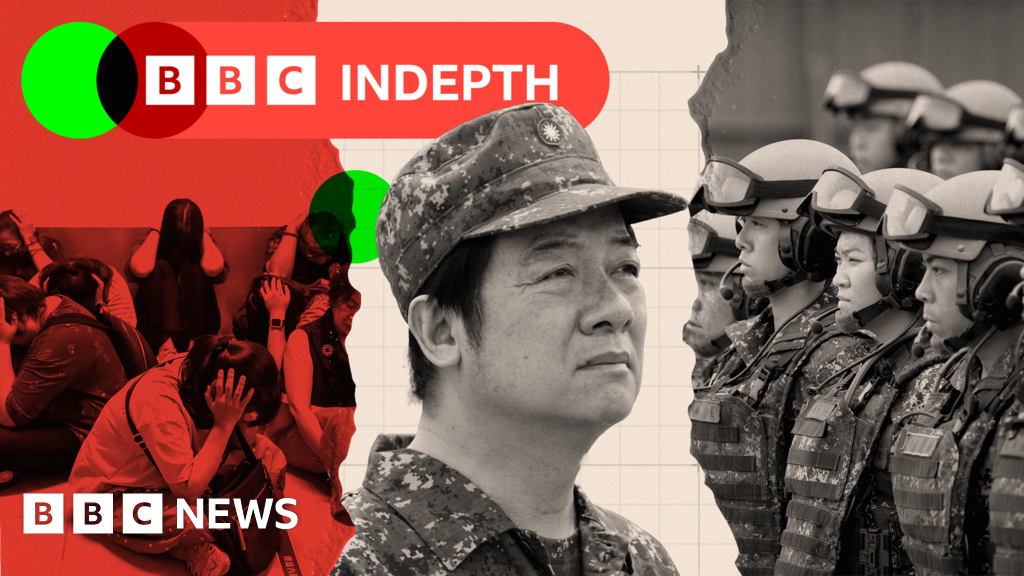It was just another Friday morning on the Taiwanese island of Kinmen, a few kilometres from the coast of China, when an air raid siren pierced the calm.
At a local government office, people switched off their lights and dove under tables. Others fled to an underground car park. At a nearby hospital, staff rushed to treat people staggering in with bloody injuries.
But the blood was fake, and the casualties were volunteer actors. Together with the government workers, they were taking part in mandatory civil defence and military drills held across Taiwan last month.
The purpose? Rehearsing their response to a possible attack by China.
China has long vowed to reunify with self-governing Taiwan and has not ruled out the use of force. It is a threat that Taiwan is increasingly taking seriously. President William Lai, who took office last year, is behind one of the strongest pushes in years to strengthen defence.
However, convincing his own people of the urgency has proven challenging. While his defence drive has garnered support, it has also sparked controversy.
Like Ben, most people in Taiwan — 65% according to a survey by the Institute for National Defense and Strategic Research (INDSR) — believe it is unlikely that China will attack in the next five years, despite U.S. warnings of an imminent threat.
Lai and his government often repeat, By preparing for war, we are avoiding war, stressing that they are not seeking conflict but rather exercising their right to defend themselves.
They plan to increase defence spending significantly amid a backdrop of ongoing military reforms and intensive civil defence exercises across Taiwan.
Despite these efforts, some citizens remain skeptical about the necessity of such preparations. Others, however, see the drills as essential to respond to the growing threat from China, especially after recent military tensions involving Chinese aircraft and naval maneuvers in the region.
A diverse array of sentiments underscores the challenge Taiwan faces in navigating its security, identity, and relationship with its powerful neighbor.




















